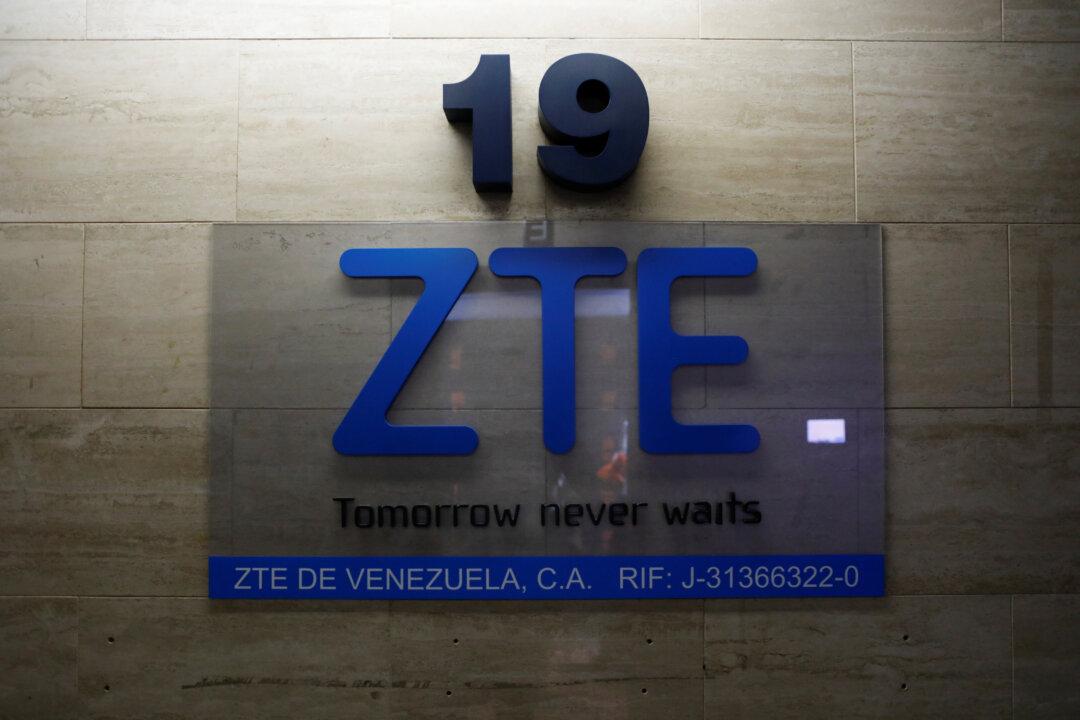CARACAS—Two U.S. senators on Nov. 28 will ask the Trump administration to investigate whether ZTE Corp, the Chinese telecommunications company, violated U.S. sanctions by helping Venezuela set up a database that monitors the behavior of its citizens.
In a letter, Senators Chris Van Hollen and Marco Rubio will ask the U.S. secretaries of state, treasury and commerce to determine whether ZTE worked with individuals cited by U.S. sanctions, used U.S. components unlawfully or helped Venezuela’s government flout democratic processes or human rights.
The letter, following a Reuters investigation of the database and an associated Venezuelan identity card program published Nov. 14, will go to the cabinet officials on Wednesday, according to aides to the two senators.
ZTE, which this year paid $1 billion to the U.S. government in relation to sanctioned business in Iran and North Korea, didn’t respond to a request for comment for this story.
Venezuela’s Information Ministry didn’t respond to a request for comment.
Officials at the U.S. State, Commerce and Treasury departments didn’t respond to requests for comment early Wednesday.
Van Hollen, a Democrat, and Rubio, a Republican, have been vocal backers of previous U.S. measures against ZTE.
ZTE has increasingly worked with Venezuela’s government in various projects there, mostly in ventures with Compania Anonima Nacional Telefonos de Venezuela, or Cantv, the state telecommunications company.
Many senior Venezuelan officials, including President Nicolas Maduro and Cantv president Manuel Fernandez, have been sanctioned by Washington because of what successive U.S. administrations have deemed authoritative behavior and human rights violations by the government of the Andean country.
Neither Fernandez nor a Cantv spokeswoman responded to requests for comment.
In its investigation, Reuters found that ZTE helped Caracas build a database that can track citizens’ behavior through a national identity card. The ID, the “fatherland card,” can compile data including financial and medical histories, usage of social media, political affiliation and whether a person voted.
One area of concern for the senators is whether ZTE installed components made by Dell Technologies Inc in the database. One document reviewed by Reuters indicated that ZTE used storage units built by the U.S-based company in equipment it installed for Cantv.
In their letter Wednesday, the senators ask “whether ZTE violated U.S. export controls with respect to the installation of data storage units built by Dell.” A spokeswoman for Dell told Reuters it had no record of a sale for that purpose.
The senators also ask the U.S. administration to determine whether ZTE’s work in Venezuela breaks the terms of the $1 billion agreement it came to earlier this year with the Commerce Department related to previous sanctions violations.
The Commerce Department said ZTE made false statements about disciplining 35 employees involved in the illegal shipping of U.S.-origin goods to Iran.
The ban was lifted in July after ZTE reached a settlement with the Commerce Department.
As part of that settlement, ZTE agreed to another monitor to who will report directly to the Commerce Department for 10 years.
A U.S. judge on Oct. 3 issued an order finding that China‘s ZTE Corp violated probation imposed in March 2017 when the company pleaded guilty for conspiring to evade U.S. sanctions by illegally shipping U.S. goods and technology to Iran.
In his order, U.S. District Judge Ed Kinkeade in Dallas extended until 2022 the term of a monitor he appointed to assess ZTE’s compliance with U.S. export control laws. The monitorship originally was scheduled to end in 2020.
The probation violation cited by the judge involves the same conduct the U.S. Department of Commerce penalized in April by imposing a ban on U.S. companies selling goods to ZTE.





